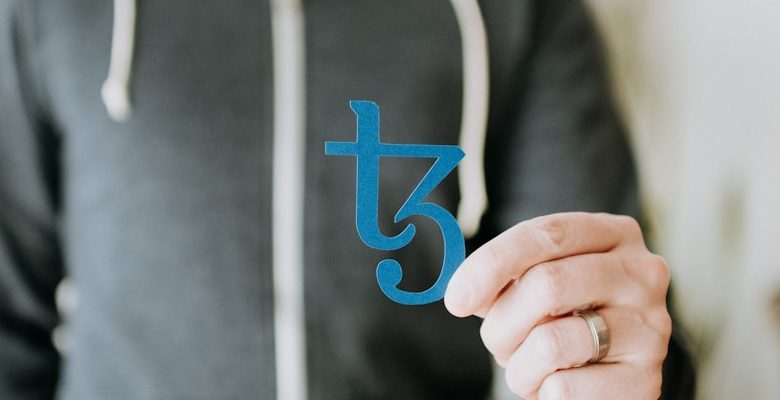Blockchain’s Role in Combatting Counterfeit Goods

- Understanding the impact of counterfeit goods
- The rise of counterfeit goods in today’s market
- Exploring the technology behind blockchain
- How blockchain can verify the authenticity of products
- The role of blockchain in supply chain management
- Case studies of successful blockchain implementations in combating counterfeit goods
Understanding the impact of counterfeit goods
Counterfeit goods pose a significant threat to businesses and consumers alike, leading to financial losses, reputational damage, and potential health risks. By understanding the impact of counterfeit products, we can better appreciate the importance of implementing effective solutions like blockchain technology to combat this issue.
Counterfeit goods not only result in economic losses for legitimate businesses but also harm consumers who unknowingly purchase substandard or harmful products. The proliferation of counterfeit goods can also erode consumer trust in brands and lead to a decline in overall market confidence.
Furthermore, the production and sale of counterfeit goods often involve criminal organizations that engage in other illicit activities. These organizations use the profits from counterfeit goods to fund more serious crimes such as human trafficking, drug smuggling, and terrorism. By addressing the issue of counterfeit goods, we can disrupt these criminal networks and protect society as a whole.
Blockchain technology offers a promising solution to the problem of counterfeit goods by providing an immutable and transparent record of transactions. This technology can help verify the authenticity of products throughout the supply chain, making it easier to detect and prevent the spread of counterfeit goods.
In conclusion, the impact of counterfeit goods extends far beyond financial losses, affecting businesses, consumers, and society as a whole. By leveraging blockchain technology to combat counterfeit goods, we can protect consumers, safeguard businesses, and disrupt criminal networks involved in the production and sale of counterfeit products.
The rise of counterfeit goods in today’s market
Counterfeit goods have become a prevalent issue in today’s market, with the rise of online shopping and global supply chains making it easier for dishonest actors to produce and distribute fake products. These counterfeit goods not only deceive consumers into purchasing low-quality items but also pose serious risks to health and safety.
From counterfeit designer handbags to fake pharmaceuticals, the market for fraudulent products is vast and diverse. Counterfeiters often use advanced techniques to replicate the appearance of authentic goods, making it difficult for consumers to distinguish between real and fake items. As a result, unsuspecting buyers may end up spending their hard-earned money on products that are not only substandard but potentially harmful.
Furthermore, the proliferation of counterfeit goods has a detrimental impact on legitimate businesses, leading to revenue losses and damage to brand reputation. In addition, the sale of fake products contributes to the funding of criminal organizations and undermines the overall integrity of the market.
Exploring the technology behind blockchain
Blockchain technology is the backbone of many innovative solutions aiming to combat the proliferation of counterfeit goods in the market. This technology operates on a decentralized network of computers that work together to validate and record transactions securely. Each block contains a cryptographic hash of the previous block, creating a chain of blocks that cannot be altered without the consensus of the network.
One of the key features of blockchain technology is its transparency and immutability. Once a transaction is recorded on the blockchain, it cannot be changed or deleted, providing a trustworthy and tamper-proof record of all transactions. This feature makes blockchain an ideal solution for tracking and authenticating products throughout the supply chain, making it easier to identify and eliminate counterfeit goods.
By leveraging blockchain technology, companies can create digital certificates for their products, which are then stored on the blockchain. These certificates contain unique identifiers that can be used to verify the authenticity of the product at any point in the supply chain. This not only helps in preventing counterfeit goods from entering the market but also enables consumers to verify the legitimacy of the products they purchase.
Moreover, blockchain technology can enable the creation of smart contracts, which are self-executing contracts with the terms of the agreement directly written into the code. Smart contracts can automate various processes in the supply chain, such as verifying the authenticity of products, tracking shipments, and ensuring compliance with regulations. This not only streamlines operations but also reduces the risk of counterfeit goods entering the market.
Overall, blockchain technology plays a crucial role in combatting counterfeit goods by providing a secure and transparent system for tracking and authenticating products throughout the supply chain. Its decentralized nature, transparency, and immutability make it an ideal solution for ensuring the authenticity of products and protecting consumers from counterfeit goods.
How blockchain can verify the authenticity of products
One of the key ways in which blockchain technology can be utilized to combat counterfeit goods is by verifying the authenticity of products. By using blockchain, companies can create a secure and transparent record of each product’s journey from manufacturing to the hands of the consumer.
This process involves assigning a unique digital signature to each product at the point of origin. This signature is then stored on the blockchain, creating an immutable record that cannot be altered or tampered with. When a consumer purchases a product, they can scan the product’s QR code or serial number to access this record and verify its authenticity.
Blockchain technology also allows for the creation of smart contracts, which can automatically verify the authenticity of a product based on predefined criteria. For example, a smart contract could be programmed to check if a product has passed through all the necessary checkpoints in the supply chain before declaring it authentic.
Furthermore, blockchain’s decentralized nature ensures that this verification process is secure and trustworthy. Since the data is stored on multiple nodes across the network, it is nearly impossible for counterfeiters to manipulate the information to pass off fake products as genuine. This level of transparency and security provides consumers with peace of mind knowing that they are purchasing legitimate products.
In conclusion, blockchain technology offers a powerful solution to combatting counterfeit goods by verifying the authenticity of products. By leveraging blockchain’s secure and transparent capabilities, companies can protect their brand reputation and consumers can make informed purchasing decisions with confidence.
The role of blockchain in supply chain management
Blockchain technology plays a crucial role in supply chain management by providing transparency, security, and traceability throughout the entire process. This innovative technology allows for the creation of an immutable ledger that records every transaction and movement of goods from the manufacturer to the end consumer. By utilizing blockchain, companies can verify the authenticity of products, track their origin, and ensure their quality.
One of the key benefits of blockchain in supply chain management is its ability to combat counterfeit goods effectively. With blockchain, each product is assigned a unique digital identifier that is stored on the decentralized ledger. This identifier contains information about the product’s origin, production process, and distribution channels. By scanning this identifier, consumers can verify the authenticity of the product and ensure that it is not a counterfeit.
Moreover, blockchain technology enables real-time tracking of goods as they move through the supply chain. This level of transparency helps in identifying any discrepancies or unauthorized changes in the product’s journey. By leveraging blockchain, companies can quickly identify and eliminate counterfeit products from their supply chain, protecting both their brand reputation and consumer trust.
In addition to counterfeit goods, blockchain also helps in preventing other types of fraud, such as theft, diversion, and tampering. The decentralized nature of blockchain ensures that the data stored on the ledger is secure and cannot be altered or manipulated. This security feature makes it extremely difficult for fraudsters to counterfeit products or tamper with the supply chain.
Overall, the role of blockchain in supply chain management is paramount in the fight against counterfeit goods. By leveraging blockchain technology, companies can ensure the authenticity and quality of their products, build consumer trust, and protect their brand reputation. This innovative technology is revolutionizing the way supply chains operate, making them more transparent, secure, and efficient.
Case studies of successful blockchain implementations in combating counterfeit goods
There have been several successful implementations of blockchain technology in the fight against counterfeit goods. These case studies demonstrate how blockchain can be used to track and verify the authenticity of products, ensuring that consumers receive legitimate items.
One notable example is the partnership between IBM and Walmart to combat counterfeit food products. By using blockchain technology, they were able to create a transparent and secure supply chain system that allowed them to track the movement of food products from farm to store. This not only helped in identifying and removing counterfeit goods from the market but also improved overall food safety.
Another successful implementation is the collaboration between VeChain and luxury goods companies to prevent the sale of fake products. By storing product information on the blockchain, consumers can easily verify the authenticity of items by scanning a QR code. This has greatly reduced the prevalence of counterfeit luxury goods in the market.
In the pharmaceutical industry, companies like Pfizer have also started using blockchain technology to combat the spread of counterfeit drugs. By recording the entire supply chain process on the blockchain, they can ensure that medications are genuine and have not been tampered with. This not only protects consumers from harmful fake drugs but also helps in building trust in the pharmaceutical industry.
Overall, these case studies highlight the effectiveness of blockchain technology in combating counterfeit goods. By utilizing blockchain for product verification and supply chain transparency, companies can protect their brand reputation and ensure consumer safety.



